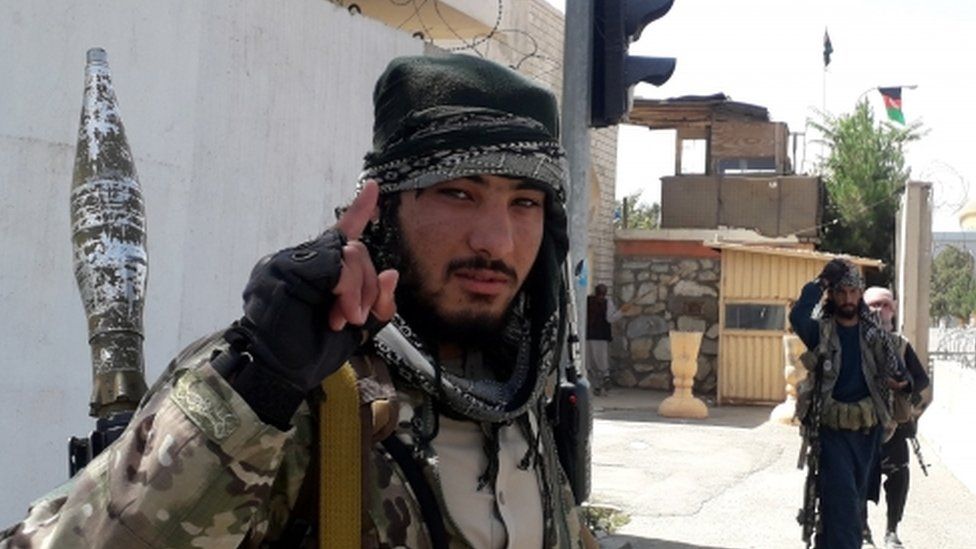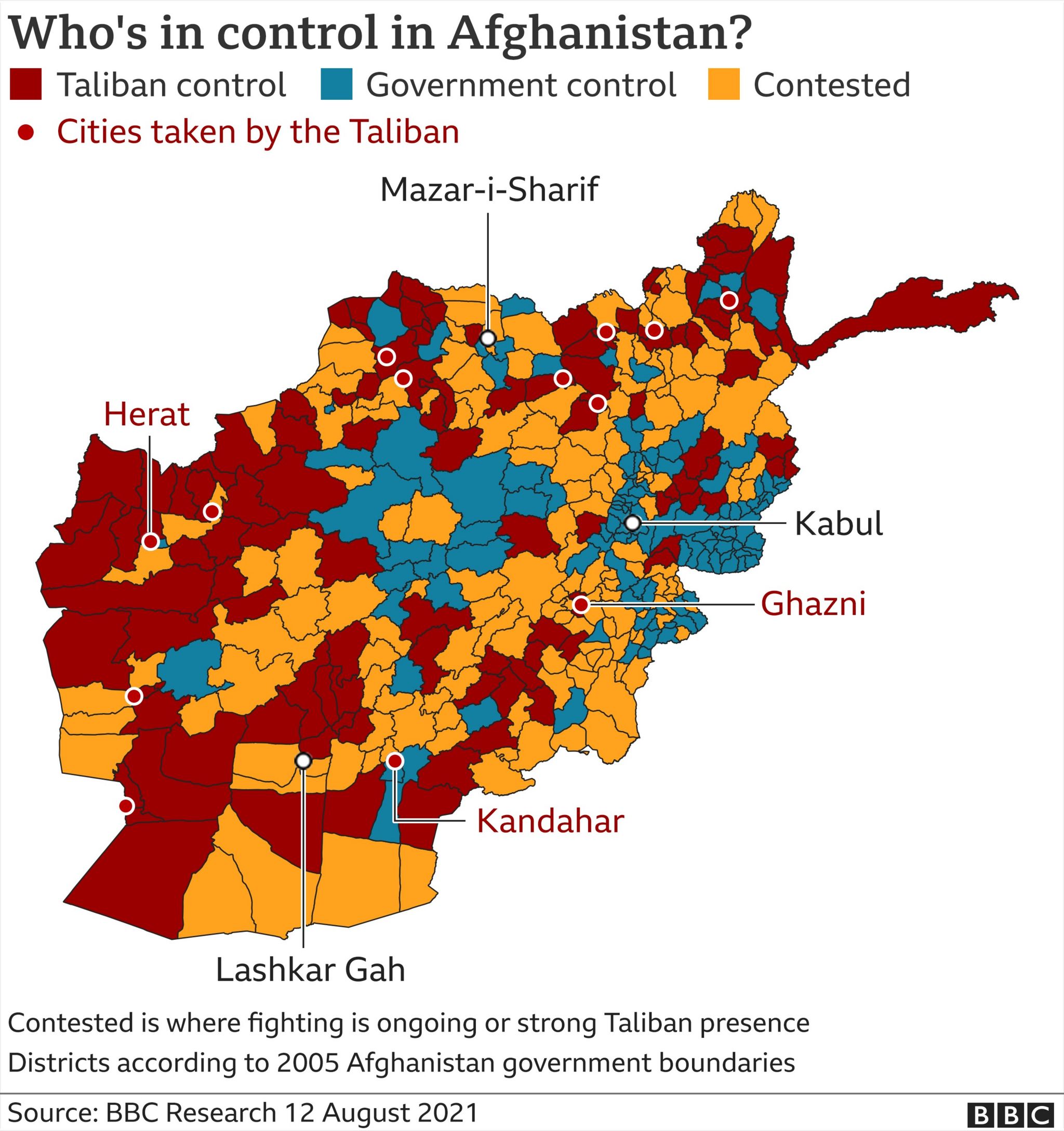Taliban capture Kandahar, Afghanistan's second largest city
The Taliban have captured Afghanistan's second largest city, Kandahar, in what is a crushing blow for the government and a major win for the militants.
The city was once the Taliban's stronghold, and is strategically important as a leading trade hub.
"Following heavy clashes late last night the Taliban took control of Kandahar city," a local government official told Reuters news agency.
Kandahar is the latest city to fall, after Herat and Ghazni on Thursday.
Meanwhile, the United States said it is sending nearly 3,000 troops back into Afghanistan to help evacuate staff from the American embassy.
The US said it was sending troops to the airport in Kabul to help evacuate a "significant" number of embassy staff on special flights.
The insurgents have moved quickly, seizing new territories as US and other foreign troops withdraw after 20 years of military operations.
Within hours of each other on Thursday some of Afghanistan's most important cities were captured - Herat, Ghazni and Qala-I-Naw came under Taliban control.
A Taliban spokesman also announced that "Kandahar is completely conquered".
A local government official told the Reuters news agency that the city had fallen to the insurgents "following heavy clashes" on Thursday night.
Sources have told the BBC that the southern city of Lashkar Gah, the capital of Helmand province, has also been taken by the militants, although this has also not been confirmed.
The Taliban now control most of northern Afghanistan and about a third of the country's regional capitals.
There are increasing concerns that the militants will continue their lightning speed offensive toward the capital, Kabul, where tens of thousands of civilians have fled violent street fighting.
"The speed of the Taliban's advance has shocked even seasoned military analysts," the BBC's South Asia Editor, Anbarasan Ethirajan said.
Why is Kandahar so important?
Kandahar is the Taliban's birthplace and former stronghold - taking control of the city would be a significant prize for the militants.
They had occupied the city's outskirts for a number of weeks before launching their attack on the centre.
On Wednesday, the Taliban breached Kandahar's central prison, and on Thursday, images on social media reportedly showed insurgents in the city centre.
A resident told the AFP news agency that government forces appeared to have withdrawn en masse to a military facility outside the southern city.
Kandahar is considered strategically important because of its international airport, its agricultural and industrial output and its position as one of the country's main trading hubs.

Ghazni, captured on Thursday, is a significant gain for the Taliban as it is on the Kabul-Kandahar motorway, linking militant strongholds in the south to the capital, Kabul.
Meanwhile Herat, an ancient silk road city, had been under siege for weeks before security forces retreated to army barracks. Video on social media shows the insurgents running through a central street firing their weapons, and the Taliban flag was seen flying over the police headquarters.
"Late afternoon everything changed. They (the Taliban) entered the city in rush. They raised their flags in every corner of the city," Herat resident Masoom Jan told AFP.
Meanwhile, the US embassy in Kabul said it was hearing reports that the Taliban were executing Afghan troops who were surrendering, saying it was "deeply disturbing and could constitute war crimes".


More than 1,000 civilians have been killed in Afghanistan in the past month, according to the UN.
Just this week thousands of people from northern provinces have become internally displaced, travelling to Kabul to seek safety. An estimated 72,000 children arrived in the capital in recent days and are mostly sleeping on the streets, according to Save the Children.
Makeshift camps have been established on scrubland on the outskirts of the capital, while many others have reportedly been sleeping on the streets or in abandoned warehouses.
"We have no money to buy bread, or get some medicine for my child," a 35-year-old street vendor who fled Kunduz province after the Taliban set fire to his home told the BBC.
In response to the insurgency, the German government has threatened to end its annual financial support of $500m (£360m) to Afghanistan if the Taliban gains complete control of the country.
Germany has also suspended the forced repatriation of Afghan citizens whose asylum applications have failed. The French and Danish governments say they will also following the same policy.
What is the Afghan government doing?
The Afghan president, Ashraf Ghani, has so far failed to unite a host of fractured Afghan militias against the Taliban.
On Wednesday, he flew to the northern city of Mazar-i-Sharif - traditionally an anti-Taliban bastion - to try to rally pro-government forces.
He also held crisis talks with ethnic Uzbek warlord Abdul Rashid Dostum and prominent ethnic Tajik leader Atta Mohammad Noor about defending the city.
For years, Mr Ghani tried to sideline the warlords in an attempt to boost the Afghan National Army, and now he is turning to them in his hour of need, the BBC's Ethirajan Anbarasan says. Earlier this week, the president also agreed to arm pro-government militia.
Source: BBC













